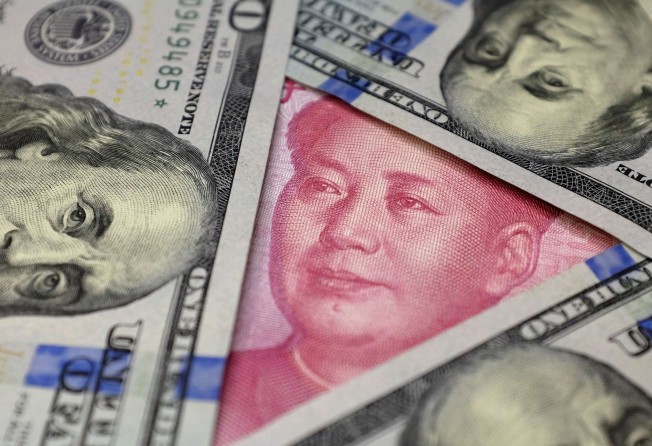Hongkongers snub yuan deposits as currency slumps
Yuan investment products lose their glitter as investors fear for exchange rate loss

Hong Kongers have avoided holding their savings in renminbi in the last year amid the currency’s slump, causing yuan-denominated bank deposits to plunge 30 per cent over the period.
Add to that China’s falling interest rates, and a mainland economy that’s expanding at the slowest clip in decades, the city’s yuan investment products aren’t likely to regain their attractiveness at least until the renminbi officially becomes a reserve currency in October under the International Monetary Fund’s Special Drawing Rights, bankers and insurers said.
“The market is pricing a gradual weakening of the yuan, which is not unreasonable given the prospect of rising interest rates in the US and a strengthening dollar,” said Mark Konyn, group chief investment officer of AIA Group Ltd. in Hong Kong.
Ever since the Chinese central bank weakened the yuan by 1.9 per cent on August 11 last year, renminbi holders have been concerned that more devaluations are on the way, as the mainland economy struggled to sustain exports, maintain factory output and keep the economy humming.
As the yuan continued to weaken, savvy Hong Kongers are swapping their renminbi into other currencies to escape their foreign exchange losses.
The value of offshore yuan in Hong Kong has dropped 7.4 per cent against the US dollar in the past 12 months. Total renminbi deposits in the city plunged 30 per cent to 711.5 billion yuan, down from 994.1 billion yuan as at July 2015, according to the Hong Kong Monetary Authority.
“The devaluation of the yuan created a negative impact on renminbi investment products,’’ said the BEA Union Investment Management’s chief executive Eleanor Wan in Hong Kong. “Prior to August 11 last year, the yuan had gradually been considered a second currency to most Hong Kong people, and Hong Kongers converted their deposits to yuan deposit or other yuan-based investment products,” expecting the currency to appreciate, she said.
Still, the renminbi could stabilise against the US dollar, amid expectations that the US currency itself would weaken, said the Bank of China (Hong Kong)’s chief economist E Zhihuan.
“As RMB investment products become increasingly sophisticated, the efficiency and cost-effectiveness of hedging against exchange rate risks will improve, which should help boost demand for RMB assets,” she said.
“Furthermore, after being officially included in the SDR basket in October 2016, the yuan, as the first ever reserve currency from emerging markets, will likely attract strong demand from various central banks and sovereign wealth funds.”
Over a decade from 2005 to 2014, the yuan actually strengthened almost 30 per cent against the US dollar, a nice return for holders of the Chinese currency.
“Despite the volatility, we believe that renminbi has entered a more healthy and sustainable trajectory,” said the Hong Kong Investment Fund Association’s chief executive Sally Wong.
“The focus would be moving to how to maintain stability of the currency against a basket of currencies. As an international currency, Rmb will assume an increasingly important role on trade settlement, investment and as a reserve currency.”
Despite the volatility, we believe that renminbi has entered a more healthy and sustainable trajectory
About 30 per cent of China’s imports and exports are now settled in yuan, since the government first made the move to allow the currency to be used globally in 2009.
Since 2010, the Chinese government also approved a number of yuan-denominated investment funds, insurance policies and bonds in Hong Kong to broaden the currency’s use. The popularity and fizz were taken out in the past year as a weaker yuan caused investments to devalue in dollar terms.
Over the longer term, the Chinese government’s infrastructure spending spree, combined with state sponsored programmes like the so-called One Belt One Road project, could raise billions of yuan of funds for the neighbouring countries that require the renminbi to partake in the project.
While the renminbi may be down, the market for yuan-denominated loans is alive and well, said Ernst & Young’s partner Keith Pogson.
Prior to the devaluation of August 2015, “many foreign companies were willing to have yuan exposure arising from their businesses on the mainland, and not hedge out the currency risk as the risk of a fall in value was seen as relatively small,” Pogson said. “Following the devaluation more looked at hedging the risk , one way to do that is to borrow in local currency, rather than offshore or onshore in US dollar or similar and taking the FX risk.”